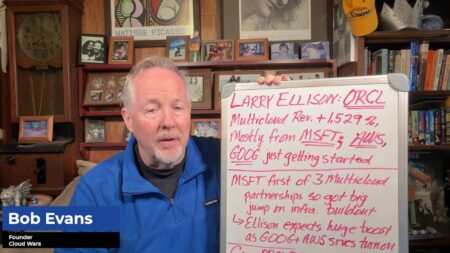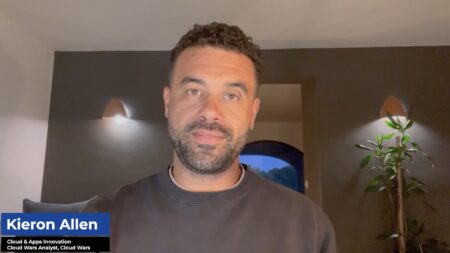
In this episode of the AI Agent & Copilot Podcast, John Siefert is joined by Stijn Geeroms, Vice President Business Solutions, Cegeka, for a conversation on Cegeka being named Microsoft’s Partner of the Year for supply chain.
Key Takeaways
- About the company: Cegeka is a global IT company headquartered in Belgium. It has around 10,000 professionals across Europe and North America. Geeroms describes Cegeka as a “Microsoft-first partner,” as it offers solutions for the various Microsoft solution areas. The company also specializes in a number of industries. “We’re very proud to also be recognized by Microsoft on our journey,” he says.
- Key efforts and vertical industries: Since the start, Cegeka has been focusing on manufacturing. More specifically, it has honed in on process manufacturing. When saying they “focus efforts” in a particular area, Geeroms clarifies that this refers to four layers: added capabilities, pre-configuration, understanding industries, and agents. Before the introduction of AI, Geeroms notes, “We might have said that ERP might break productivity, but it was mainly streamlining their processes and giving them insight.” But now, it’s bringing new opportunities for productivity with Microsoft solutions.
- Customer example: Cegeka recently went live with a large pharma customer. “We went live in almost nine months, which I think, for that industry, is very fast and a broad scope,” Geeroms explains. It involves planning, warehousing, sales, procurement, and more. Because they focus on pre-configuration, they were able to accelerate the adoption and validation processes required for that industry. Now, Cegeka is working with that customer on implementing agents and automation to make the platform more efficient.
- Market demands: The rapid transformation that Cegeka was able to do with that customer demonstrates the pace of change as well as the pace of innovation that AI is bringing. “They demand from us a solution fitting to their requirements as fast as possible…Once they’re on it, they’re continuously thinking of improvement on optimization,” he says. This is what the market is demanding. “It’s no longer a one-shot; it’s like a life method.”








